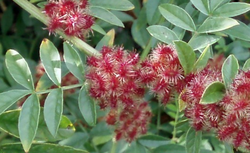 We can think of at least 180 great forest garden & perennial crops for cold climate Sweden. Want to hear about them? Over the course of the next year we will profile 5 a week on the blog. Perennial plants and crops offer a low energy, oil & resource input based foundation for future-proof agricultures. By default if an agriculture is to be called regenerative the bottom line is that it must be soil building, not soil depleting. Relentless deep tillage & poor soil husbandry (wifery?!) contributes to the majority of the 24 billion tons of topsoil lost every year on planet water. We are going to be focused on holistic polyculture grazing and perennial production at ridgedale over most of the site as this represents the most effective way to restore our degraded landscape, produce high value produce and ensure the future resource base we are managing holistically for in our decision making.
0 Comments
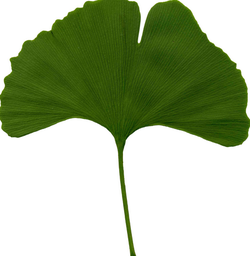 Ginkgo biloba, ginkgo Ginkgo biloba, ginkgo We can think of at least 180 great forest garden & perennial crops for cold climate Sweden. Want to hear about them? Over the course of the next year we will profile 5 a week on the blog. Perennial plants and crops offer a low energy, oil & resource input based foundation for future-proof agricultures. By default if an agriculture is to be called regenerative the bottom line is that it must be soil building, not soil depleting. Relentless deep tillage & poor soil husbandry (wifery?!) contributes to the majority of the 24 billion tons of topsoil lost every year on planet water. We are going to be focused on holistic polyculture grazing and perennial production at ridgedale over most of the site as this represents the most effective way to restore our degraded landscape, produce high value produce and ensure the future resource base we are managing holistically for in our decision making. 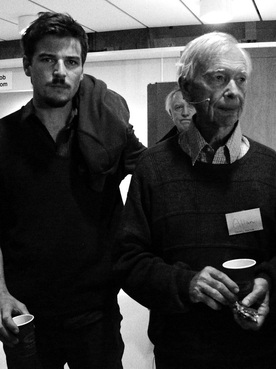 Meeting with Allan Savory in Sweden Meeting with Allan Savory in Sweden Allan Savory's work observing & managing game reserves, ranches & national parks as a biologist is only part of what he describes led him to his breakthroughs fighting desertification (and the subsequent social & economic breakdown in some of the world's most hostile environments) through holistically planned grazing. His role as President of the opposition party against a racist government in Rhodesia (now Zimbabwe) eventually forced him to seek exile in the US where he observed desertification in National Parklands as bad as anything in Africa, yet with large herbivores having been absent for decades. As late as 1969 he was advocating culling large populations of wild animals such as elephants and hippos, when they were appearing to be destroying their habitat. He had participated in the culling of 40,000 elephants in the 1950s but he later concluded the culling did not reverse the degradation of the land, calling that project "the saddest and greatest blunder of my life" in his recent TED talk. Savory was inspired by earlier work of French agronomist André Voisin (some works available freely at the awesome resource http://www.soilandhealth.org/) who observed that cattle tended to return to the same patch of grass after about three days. Savory saw this as a solution of the riddle of time and that it was the length of time cattle were left in the same area and not just simple overgrazing which led to problems. Holistic planned grazing is now happening on every continent on over 15M Ha. 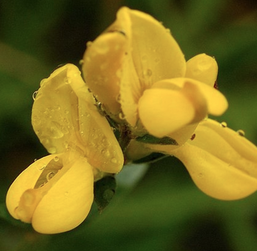 Genista tinctoria, Dyers greenwood Genista tinctoria, Dyers greenwood We can think of at least 180 great forest garden & perennial crops for cold climate Sweden. Want to hear about them? Over the course of the next year we will profile 5 a week on the blog. Perennial plants and crops offer a low energy, oil & resource input based foundation for future-proof agricultures. By default if an agriculture is to be called regenerative the bottom line is that it must be soil building, not soil depleting. Relentless deep tillage & poor soil husbandry (wifery?!) contributes to the majority of the 24 billion tons of topsoil lost every year on planet water. We are going to be focused on holistic polyculture grazing and perennial production at ridgedale over most of the site as this represents the most effective way to restore our degraded landscape, produce high value produce and ensure the future resource base we are managing holistically for in our decision making. 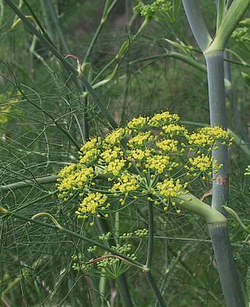 Foeniculum vulgare, fennel Foeniculum vulgare, fennel We can think of at least 180 great forest garden & perennial crops for cold climate Sweden. Want to hear about them? Over the course of the next year we will profile 5 a week on the blog. Perennial plants and crops offer a low energy, oil & resource input based foundation for future-proof agricultures. By default if an agriculture is to be called regenerative the bottom line is that it must be soil building, not soil depleting. Relentless deep tillage & poor soil husbandry (wifery?!) contributes to the majority of the 24 billion tons of topsoil lost every year on planet water. We are going to be focused on holistic polyculture grazing and perennial production at ridgedale over most of the site as this represents the most effective way to restore our degraded landscape, produce high value produce and ensure the future resource base we are managing holistically for in our decision making. 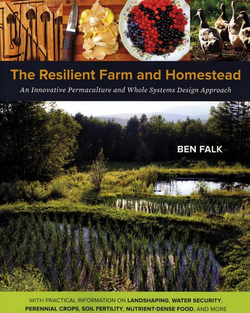 Ben Falk's book is a must for cold climate Permaculture designers, homesteader's and anyone keen to learn from insightful and experienced holistic decision making. We thoroughly enjoyed the read, and most importantly from our perspective; it's a work based on raw experience, dedication and enthusiasm. Permaculture design is learnt by doing; we need more practitioners out on the ground working professionally & implementing resilient and effective solutions restoring ecosystems, connecting people to bring about robust local economies & exchange systems and meeting our human needs holistically. This book supports those objectives, written in a refreshing tone that sets aside theory from observed practice. Ben has a diverse and deep design experience, and we are very excited to have him join us this spring for the first PDC at the farm as a guest lecturer via conference call. Peter Bane wrote a nice review for Permaculture Activist which gets deeper into different aspects of the book if you are interested. If you are considering taking a Permaculture Design Course this year check out the listings at the farm, where we are proud to have some of the leading global practitioners & researchers join us via digital link up, as well as local expertise joining us for different trainings. Details are getting posted on relevant course listings as they come in.
We are also excited to offer what we think is a unique learning opportunity in Europe- our 10 Week Professional Permaculture Accelerator Internship. We might be biased, but we think it's the most exciting Permaculture event happening in Europe this year, including over 530hrs of curriculum based learning & 5 Certificate Courses with some awesome folks joining us on the ground & via teleconference as we initiate this flagship project;
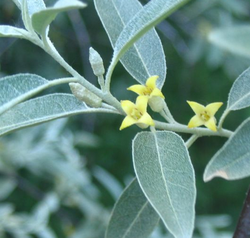 We can think of at least 180 great forest garden & perennial crops for cold climate Sweden. Want to hear about them? Over the course of the next year we will profile 5 a week on the blog. Perennial plants and crops offer a low energy, oil & resource input based foundation for future-proof agricultures. By default if an agriculture is to be called regenerative the bottom line is that it must be soil building, not soil depleting. Relentless deep tillage & poor soil husbandry (wifery?!) contributes to the majority of the 24 billion tons of topsoil lost every year on planet water. We are going to be focused on holistic polyculture grazing and perennial production at ridgedale over most of the site as this represents the most effective way to restore our degraded landscape, produce high value produce and ensure the future resource base we are managing holistically for in our decision making. 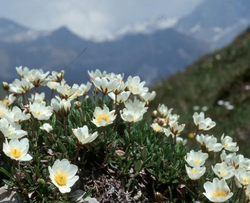 Dryas octopetala, Mountain avens Dryas octopetala, Mountain avens We can think of at least 180 great forest garden & perennial crops for cold climate Sweden. Want to hear about them? Over the course of the next year we will profile 5 a week on the blog. Perennial plants and crops offer a low energy, oil & resource input based foundation for future-proof agricultures. By default if an agriculture is to be called regenerative the bottom line is that it must be soil building, not soil depleting. Relentless deep tillage & poor soil husbandry (wifery?!) contributes to the majority of the 24 billion tons of topsoil lost every year on planet water. We are going to be focused on holistic polyculture grazing and perennial production at ridgedale over most of the site as this represents the most effective way to restore our degraded landscape, produce high value produce and ensure the future resource base we are managing holistically for in our decision making. 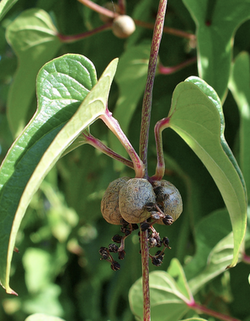 Dioscorea opposita, Chinese yam Dioscorea opposita, Chinese yam We can think of at least 180 great forest garden & perennial crops for cold climate Sweden. Want to hear about them? Over the course of the next year we will profile 5 a week on the blog. Perennial plants and crops offer a low energy, oil & resource input based foundation for future-proof agricultures. By default if an agriculture is to be called regenerative the bottom line is that it must be soil building, not soil depleting. Relentless deep tillage & poor soil husbandry (wifery?!) contributes to the majority of the 24 billion tons of topsoil lost every year on planet water. We are going to be focused on holistic polyculture grazing and perennial production at ridgedale over most of the site as this represents the most effective way to restore our degraded landscape, produce high value produce and ensure the future resource base we are managing holistically for in our decision making. 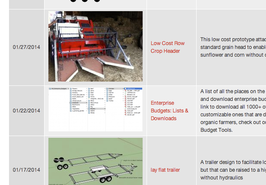 Open Source mod's @ Farmhack.net Open Source mod's @ Farmhack.net As well as Well Engineered Stuff we also like innovative use of tools & machines that make farming less debt reliant; a core aspect of Regenerative Agriculture. Inspired by Darren J. Doherty's innovative adaptations of the Yeoman's Plow (and subsequent other mod's from others) we are tricking out our own Yeomans 6SB to accommodate forhigh quality tree planting as well as seeding, biofert/ compost tea applications and hopefully in the future pasture cropping to close the loop on our pastured broiler & pig enterprises. There's a couple of awesome sites everyone should know about if they don't already.... 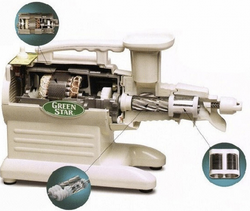 Most of the kitchen scraps that go into the compost bin, as well as a lot of the crop "waste" that doesn't even make it into the kitchen is perfectly good edible & nutritious material. (sometimes the most nutritious bits!) Whilst we don't really believe in waste; it's either headed for livestock, worms or soil micro- organisms anyway, it feels beneficial to get as much out of every yield possible, by making super nutritious juices and then sending the pulp on to animals or the compost. So what makes a good juicer? 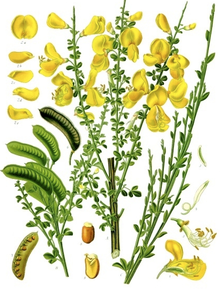 Cytisus scoparius, Scotch broom Cytisus scoparius, Scotch broom We can think of at least 180 great forest garden & perennial crops for cold climate Sweden. Want to hear about them? Over the course of the next year we will profile 5 a week on the blog. Perennial plants and crops offer a low energy, oil & resource input based foundation for future-proof agricultures. By default if an agriculture is to be called regenerative the bottom line is that it must be soil building, not soil depleting. Relentless deep tillage & poor soil husbandry (wifery?!) contributes to the majority of the 24 billion tons of topsoil lost every year on planet water. We are going to be focused on holistic polyculture grazing and perennial production at ridgedale over most of the site as this represents the most effective way to restore our degraded landscape, produce high value produce and ensure the future resource base we are managing holistically for in our decision making. 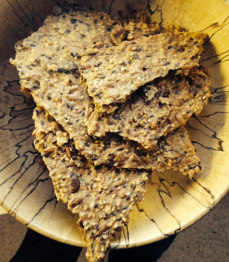 Knäckebröd, or crispy bread is a tradition emerging from our home county of Värmland. Since crispbread then contains less than 10 percent water it stores for a long time, something that was even more important in older time when other conservation opportunities were lacking. There have also been reports that both fermented grains and these crispy dry breads are much more suitable for the body than our modern breads. Our lovely neighbor invited us for Fika (pronounced "fee-ka") that basically implies "drinking coffee" although often with a sweet or snack and gave us the best Knäckebröd we've tasted. Full of seeds and flavour we thought we would share the recipe- it's super easy to make. |
Details
Like us on FB Below for regular updatesStay up to date with customized updates you want to receive
Upcoming coursesArchives
December 2016
Categories
All
|
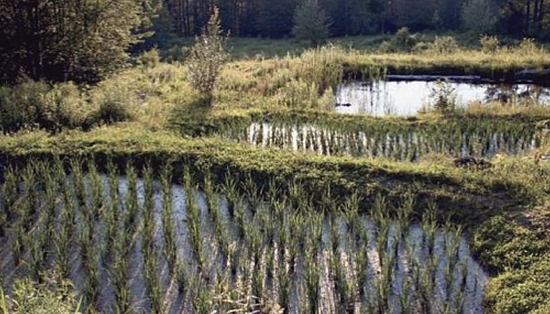

 RSS Feed
RSS Feed